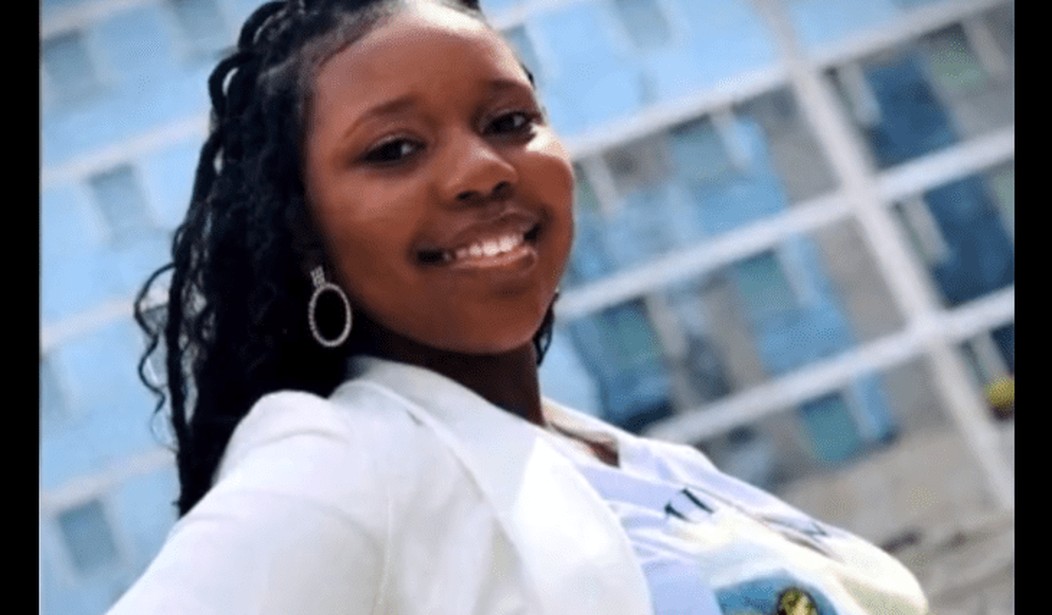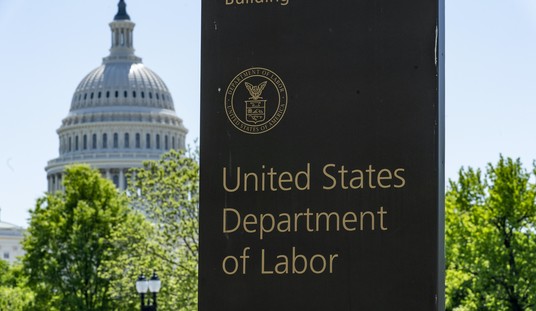Sometimes hoaxes can be benign situations that cause little damage to those involved. But in other cases, they can cause great harm. The case of Jussie Smollett is an example. His fake hate crime only served to further foment racial tensions, which had already been fraught enough.
The case of Carlee Russell, if the indications turn out to be true, might have a pernicious impact in a different way.
For those who are unfamiliar with Russell’s case, RedState‘s Sister Toldjah reported on it Wednesday:
Last Thursday evening, Alabama resident Carlee Russell, 25, seemingly disappeared out of thin air after calling 911 to file a report on an alleged male toddler who she claimed was walking alone on the side of Interstate 459 South. She told dispatchers that she wanted to check on and presumably rescue the child.
…
Thankfully, Russell returned home late Saturday night on foot. Though she was disheveled, according to her parents, as though something had happened to her, police have since revealed new information that calls into question her story that she was abducted by a male and female.
According to reports on the timeline of events regarding Russell’s alleged disappearance, after she disconnected from 911 she also placed a call to her brother’s girlfriend, who Russell’s mother, Talitha Russell, said had a short conversation with her before hearing Carlee Russell scream after supposedly speaking to the child to find out if he was okay.
Police arrived shortly thereafter, and located Russell’s car and belongings but not her nor the alleged toddler.
Russell returned home after a two-day search that had many believing she was missing. However, in a surprising turn of events, the police questioned the validity of Carlee’s story during a press conference. They disclosed her internet searches, which included topics related to whether one has to pay for amber alerts and the movie “Taken.” Angela Harris, the woman who led the search to find Russell and who also had a child who was abducted and murdered, expressed relief that Carlee was alive regardless of the circumstances.
Still, it appears law enforcement does not believe Russell’s story, nor does anyone else.
The case of Carlee Russell has sparked concerns about its impact on future missing persons cases, particularly for African American women. “It’s going to be much more difficult for African American women to be believed, and it may actually decrease the number of actual reports of things because people are already afraid that they won’t be believed,” said Eric Guster, a Birmingham attorney who weighed in on the case.
The attorney noted that the police chief mentioned three crimes they believe Carlee committed: theft, lying to authorities, and filing a false police report.
The case has raised concerns among the people who participated in the search efforts and those working on missing persons cases. As the possibility arises that Russell might have fabricated her kidnapping, there are worries that it could impact future searches for missing young women of color. The statistics show that Black people make up a disproportionately large number of missing person reports compared to their population percentage:
According to 2021 FBI data, Black people make up 31% of missing person reports but only 14% of the US population. White people, meanwhile, make up 54% of missing person reports and 76% of the US population.
Derrica Wilson, co-founder of Black & Missing Foundation, emphasizes that there are still numerous unsolved cases of missing Black people, many of which are related to human trafficking, domestic violence, and mental health issues. She urged the public to continue amplifying these cases to ensure they receive the attention they deserve.
“For our community, we can’t lose sight of the bigger picture,” she insisted. “We are disappointed that there are inconsistencies with her (Russell) story especially when there are a staggering number of people of color who are still missing and they need our help.”
Carlee’s alleged hoax is deeply problematic, especially in the context of the disproportionate number of Black people who go missing and remain unfound. As the statistics indicate, Black individuals make up a significant percentage of missing person reports compared to their population representation.
The fact that law enforcement resources were expended on searching for Carlee, who later emerged with doubts raised about her kidnapping claim, highlights a concerning discrepancy in the attention and resources given to missing persons cases involving black individuals. This situation can perpetuate existing biases and mistrust between some communities and law enforcement, potentially making it even more challenging for future cases involving missing black individuals to receive the urgent and thorough investigation they deserve.
Furthermore, Carlee’s alleged hoax risks overshadowing the urgent and pressing issues faced by missing Black individuals, many of whom are victims of human trafficking, domestic violence, and mental health crises. These vulnerable individuals often face significant challenges in obtaining adequate attention and support for their cases.
When high-profile cases like Carlee’s emerge with uncertainties surrounding their credibility, it can erode public trust and hinder the efforts of organizations like the Black & Missing Foundation, which tirelessly works to amplify the voices of those affected by these tragedies. The only silver lining to hoaxes like these is that they can be used to draw attention to actual issues that deserve our attention. As Wilson said, Americans should not lose sight of the “bigger picture.”













